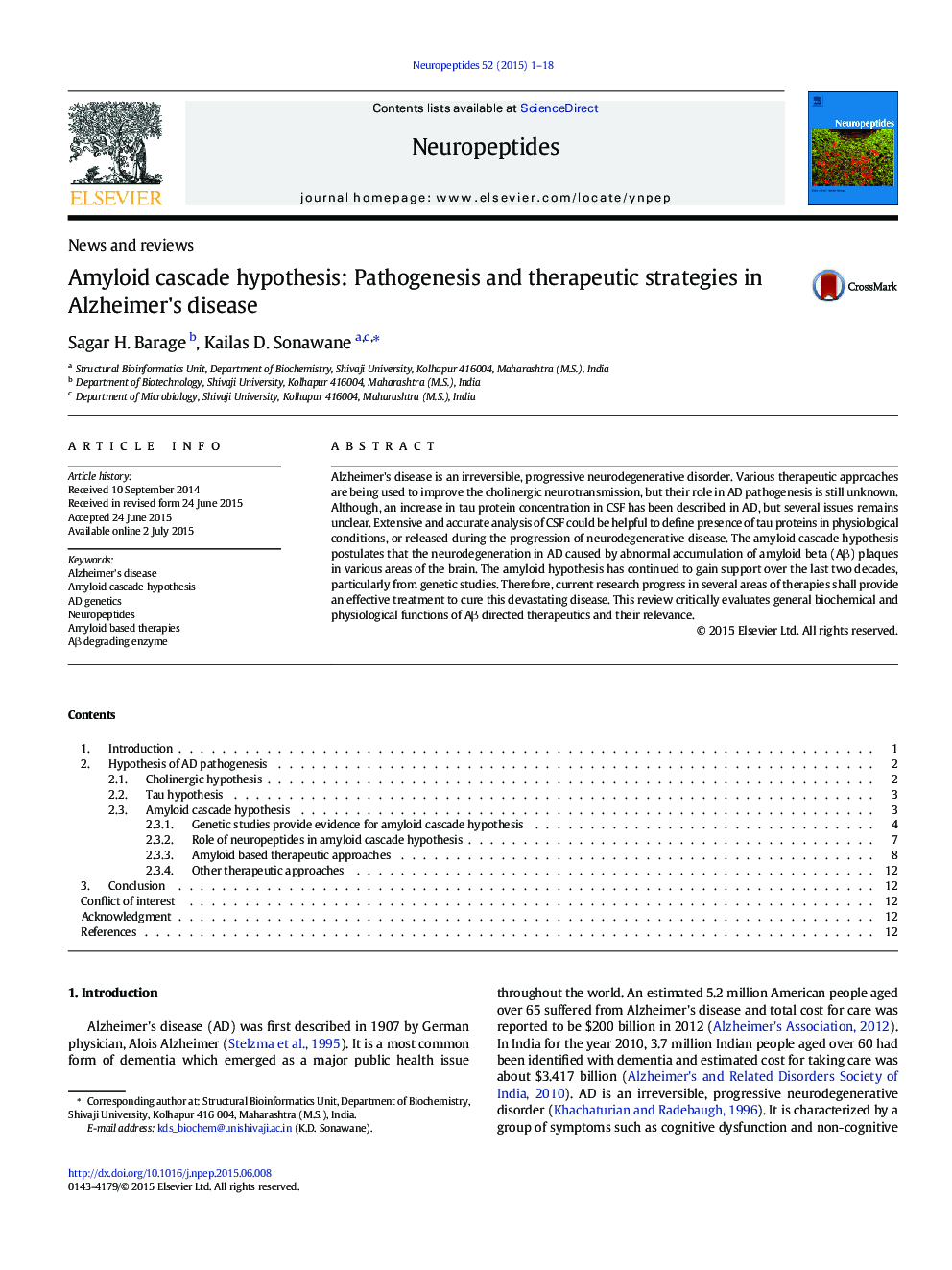| کد مقاله | کد نشریه | سال انتشار | مقاله انگلیسی | نسخه تمام متن |
|---|---|---|---|---|
| 2807965 | 1569070 | 2015 | 18 صفحه PDF | دانلود رایگان |
• Hypothesis of Alzheimer's disease
• Amyloid cascade hypothesis along with evidence of genetic studies
• Amyloid based therapeutic approaches
• Aβ degrading enzymes
• Structural studies of Aβ degrading enzymes
Alzheimer's disease is an irreversible, progressive neurodegenerative disorder. Various therapeutic approaches are being used to improve the cholinergic neurotransmission, but their role in AD pathogenesis is still unknown. Although, an increase in tau protein concentration in CSF has been described in AD, but several issues remains unclear. Extensive and accurate analysis of CSF could be helpful to define presence of tau proteins in physiological conditions, or released during the progression of neurodegenerative disease. The amyloid cascade hypothesis postulates that the neurodegeneration in AD caused by abnormal accumulation of amyloid beta (Aβ) plaques in various areas of the brain. The amyloid hypothesis has continued to gain support over the last two decades, particularly from genetic studies. Therefore, current research progress in several areas of therapies shall provide an effective treatment to cure this devastating disease. This review critically evaluates general biochemical and physiological functions of Aβ directed therapeutics and their relevance.
Journal: Neuropeptides - Volume 52, August 2015, Pages 1–18
